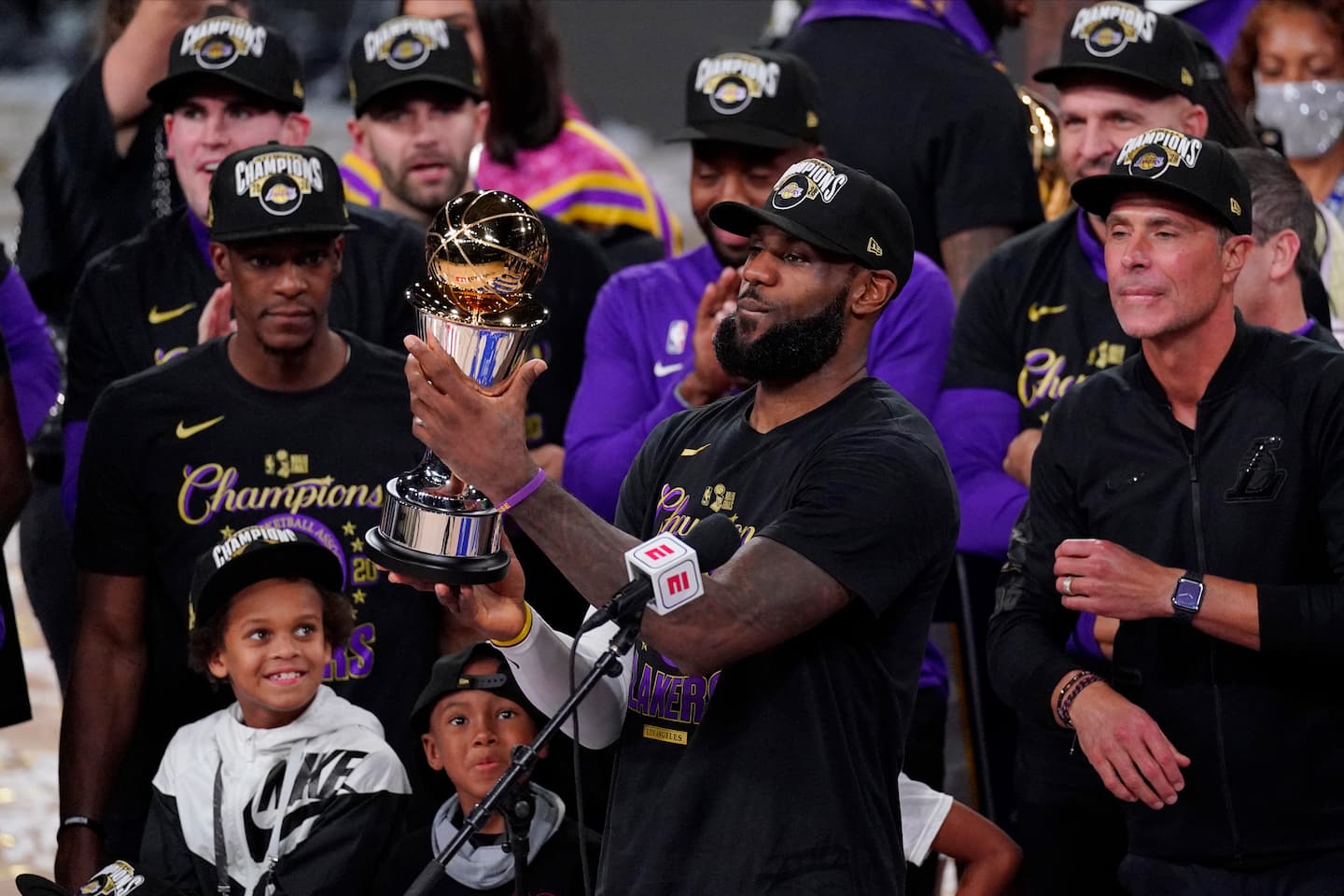I always watch the NBA Finals. But this year all the politics pushed me away.

It was a tough choice. My love of the National Basketball Association is part of my identity among longtime friends and family, making me an odd duck in a southern Ohio region where pro basketball has never been popular; the Cincinnati Royals (now the Sacramento Kings) left town in 1972 due to low fan support. I can name by heart every NBA champion since the first in 1947 and regale you with endless NBA minutia.
After our national coronavirus (over)reaction and the NBA and other sports shut down, I was not happy with the decision to restart play with few or no spectators on hand, turning the games into pure television productions complete with fake crowd sounds. Part of the attraction of sports are the endless debates comparing players and champions from season to season. This year, that’s impossible. Shooting a crucial free throw at the end of an NBA playoff game in an empty “bubble” at Disney World is hardly the same as doing it as a part of the visiting team in front of 20,000 screaming fans.
Still, when the NBA returned in late July, I was ready. I tuned in to TNT for a doubleheader, ensconced in my recliner, popcorn at my fingertips. I had read that Black Lives Matter would be scrawled across the court, and players could wear social-justice themes on their jerseys, and while I disagreed with those choices, I was ready to accept them. Finally, the national anthem was performed. When players and others locked arms and knelt, I said aloud to no one in particular, “I’m done.” I turned the station and did not tune back in.
I share the outrage over the killing of George Floyd and other horrible examples of racial injustice in America. I’ve written before how the biographies of Black NBA players of the 1950s, ’60s and ’70s helped shape my perspective of race relations and civil rights. I’ve always supported the right of athletes to be active in politics and social causes. What I vehemently oppose is doing any of that during the games themselves.
In a world where uniting Americans around anything is increasingly impossible, sports was the last outpost where people Black and White, left and right, young and old could, for two or three hours, put aside their differences, escape from the controversies of the world and unite around a shared passion. That’s gone.
Why is kneeling during the anthem so disturbing to me? Because the anthem and the flag we honor during its playing represent men and women from all racial backgrounds who paid the ultimate sacrifice for the freedoms we enjoy. Yes, it’s an imperfect society, but it has been made less imperfect by those who served, fought and sometimes died to protect the rest of us. Players, coaches and others claim that by kneeling they’re only protesting racial injustice. But what millions of Americans see are people who have reaped the financial benefits available in the United States disrespecting those who fought to guarantee them that opportunity.
I’m not alone. Gallup found in September that the sports industry has gone from a plus-20 favorability rating in 2019 to minus-10 this year, citing as a possible factor pro baseball, football and basketball having “become focal points for public displays of support for the Black Lives Matter movement.” In a Harris Poll that same month, 39 percent of sports fans said they were watching fewer NBA games, with 38 percent of those citing the reason as the league becoming “too political.”
As a fan who for years hoped that more Americans would share my love of the NBA and who celebrated the day when NBA Finals ratings regularly matched or surpassed those of the World Series, I take no joy in the falling TV viewership of my favorite sport. But I hate that it’s such a self-inflicted wound. Americans watch sports not to pretend the problems, issues and injustices of our world don’t exist but to enjoy a brief, temporary respite from them. The leagues and their players should understand that.
I’m far outside the demographic that the NBA or its TV partners care about. My loyalty isn’t important to them anymore. The NBA can live without me. Bittersweet as it is, I learned this year I can live without the NBA.
Read more:






